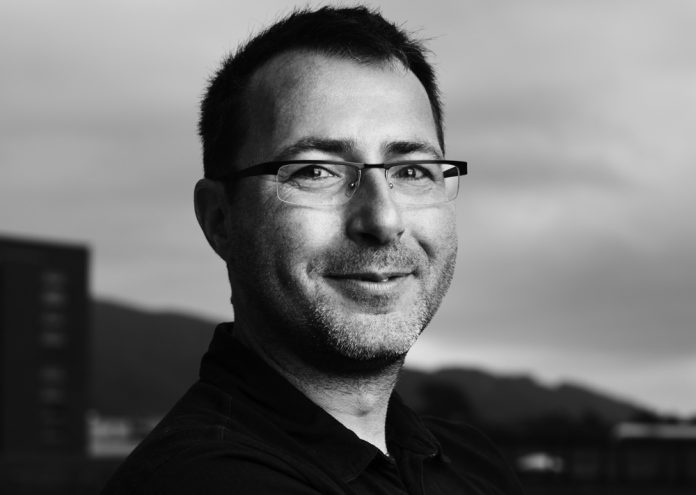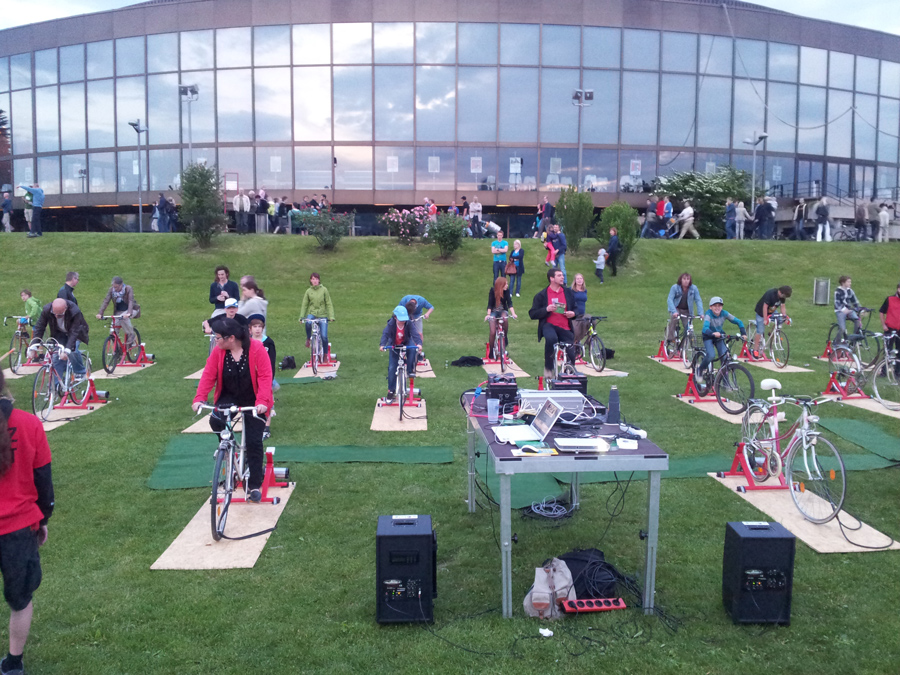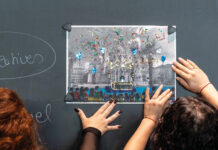
Otelo – Open technology laboratories as future hubs in rural areas
In order to halt the flight of young creatives from rural regions, Martin Hollinetz came up with the idea of founding an open technology laboratory, which is accessible to everyone, and which invites people to share their experiences, ideas and knowledge.
While cities continue to register a huge growth in population, rural regions are faced with the opposite situation. Young people are drawn to the urban centres, and the local population is becoming older. As a result, innovation is difficult to push through in these areas, and structures that are usually outdated are maintained. Migration away from these regions and a lack of prospects are the problems to which rural areas are trying to find a solution. Creative and innovative minds lack the incentive to remain in their place of origin. In the cities, better networks are available in order to develop and implement new ideas. Martin Hollinetz himself moved away from his home community to live in the city. When he returned to the country as the head of regional management for the
Vöcklabruck/Gmunden region, he realised in 2008 that the regional development and creative industries in rural areas needed to be strengthened. His purpose was to create spaces in which creatives can develop and generate networks that are otherwise only to be found in cities. Otelo was born. “Otelo” stands for “open technology laboratory”. The local authorities provide disused, empty rooms where so-called “hubs” can meet and exchange ideas. A hub is a small group of at least five people, who work together on a project in an area of activity.
Otelo embodies an experimental culture of innovation
With his project, Hollinetz has created a new, local culture of innovation. On the basis of his work in Gmunden and Vöcklabruck, he built up a network that extends far beyond Upper Austria and even Austria itself. Overall, there are now 22 projects in Upper Austria, Lower Austria, Carinthia, Germany, Italy and Spain. This cooperation between the local authorities and civic society groups also serves as a model for other regions in Europe. Even in Detroit in the US, there are plans to create an Otelo. The individual Otelos are self-organised, independent and run by volunteers. The association management committee, in other words, the local team, is responsible for hosting an Otelo overall, both in terms of organisation and atmosphere. Here, everything is possible as long as it is in line with the values set out in the charter – an agreed canon – which put simply calls on those involved to share and actively contribute. The added value of Otelo is that is provides easy access to a wide range of different application fields, such as the natural sciences, technology, the media, art or agriculture, and that here, the individual members are supported in developing their ideas, as well as planning and implementing their projects. As a result, unusual projects are created such as the Mobile Human Powerstation (Mohups): here, the energy generated when people really go full power ahead in the fitness studio is put to practical use. Generators are mounted onto bikes, and only when enough people really pedal hard is sufficient electricity produced to enable host a concert, for example.
Education projects such as “KET – kids experience technology” in turn attempt to promote an interest in technical professions among primary school children. Various cooperations with social systems such as education, politics or the economic sector mean that the innovations created in the Otelos are used for the benefit of the population at large. One example of this are the 3D printing laboratories which are installed in schools in Upper Austria, and which can be used by everyone – not just the pupils. The Otelo network creates the ideal humus for forging new contacts, which can in turn lead to the formation of successful business relationships. One example are two 3D printing start-ups, Evo-tech, founded by Markus Kaltenbrunner, and RepRap Austria, founded by Benjamin Krux. Markus Kaltenbrunner from Evo-tech built his first 3D printer in the Otelo in Vöcklabruck, and also met his later business partner via the Otelo network. Access is open to anyone, and without being restricted by institutional rules, interesting activities can be pursued here, from cooking to bicycle repairs and tinkering with electronic appliances through to 3D printing or a Virtual Reality Lab. Here, inclusion is put into practice and taken one step further, since marginal groups in society also find a place here in which they can get involved and pursue their interests. activities can be pursued here, from cooking to bicycle repairs and tinkering with electronic appliances through to 3D printing or a Virtual Reality Lab. Here, inclusion is put into practice and taken one step further, since marginal groups in society also find a place here in which they can get involved and pursue their interests.

Innovation requires the adaptation of existing structures
The Otelos adapt the concept and way of working of the creative industries in order to exploit the potential within a region and work together to create something new. In the interim, they have also spawned the Otelo eGen, the first employment cooperative in Austria. The people and associations involved have been experimenting with new forms of work and commercial activity since the start of 2014, and within the collective, they are attempting to make their living through the exchange of knowledge and resources in the fields of regional development, consultancy, media work, new technologies and education. All members are employees, as a result of which no-one bears the risk alone, while at the same time being able to act independently. Each member receives a fixed salary; those who earn more are given more time off instead of more money. One of the current Otelo eGen projects is “the realisation game” (“Erkenntnisspiel”), which moves in the realm of “mixed reality”. Here, through the use of virtual reality glasses, the boundary between reality and fiction is lifted and a reflex process is triggered in the wearers that causes them to question their own media behaviour. This project is being run as part of the “Innovative OÖ 2020” scheme, and will be implemented in cooperation with Ars Electronica and the federal state of Upper Austria/health department. The different Otelos and their projects generate new impulses for the regions, which act as levers for processes of social change. The rural areas become more attractive for young people, who do not only have to take their innovative ideas to the urban centres, but can also find opportunities for development and places to go where they can experiment in their region, too.
Martin Hollinetz
Initiator Otelo – Offenes Technologielabor & Otelo eGen
www.otelo.or.at
www.oteloegen.at











